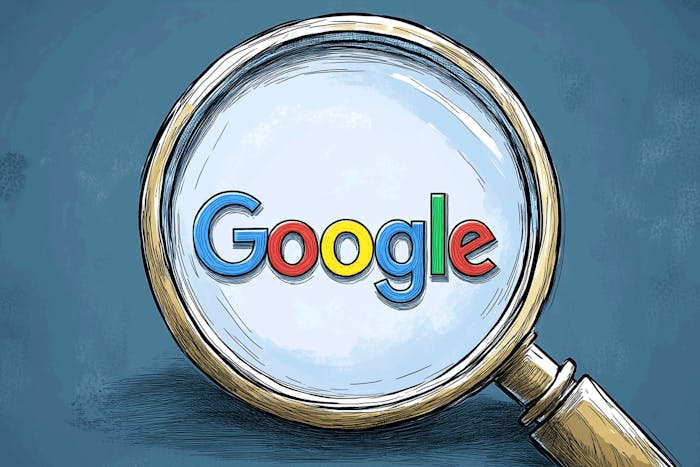Google killed cache links. This has led to unfulfilled demand for new software
tools.
Google killing 'cache' links created several opportunities for new software ideas.

Google has officially killed cache links.
This creates a void in the market that could be filled by (drumroll) someone like you, dear indie hacker.
A cache… what?
A "cache link" was a special link to a website in Google search results.
It linked to a previously-saved snapshot of the website as it appeared when Google's bots last crawled and indexed the page:

Once you visited a cache link, you could see usually see a full version of how that page looked just a few days prior, even if it had been changed in the interim, or even if the website was down.
But now cache links are a thing of the past.
Google’s "search liaison" Danny Sullivan confirmed this on X:
“Yes, [cache links have] been removed. I know, it’s sad. I’m sad too. It’s one of our oldest features. But it was meant for helping people access pages when way back, you often couldn’t depend on a page loading. These days, things have greatly improved. So, it was decided to retire it.”
Why did people use cache links?
Cache links had all sorts of use cases:
Accessing dead websites. Cache links would show you website even if they'd gone offline.
Bypassing firewalls or geoblocks. Ever gotten an error that "This page is not supported in your country"?
SEOs used them for competitor research. For example, some sites would show different results to Google vs. people.
Google has decided to replace the cache links with Internet Archive's Wayback Machine, which is not an ideal alternative.
The Wayback machine is on the decline. It recently lost a major lawsuit and I'm seeing it getting worse as time passes by.
All of this creates several interesting opportunities for us indie hackers.
What can you build to fill this gap?
Here are several ideas:
1. A browser extension to get "Cache" back using a different data source.
Bing still has a "Cache" feature (here's an example). You could build a Chrome/Firefox extension that adds "Cache" next to Google's search results and uses a different data source, like Bing.
When YouTube removed the "dislike" button, a Chrome extension appeared that got the button back. That extension now has 5 million users.
2. A tool to help people compare page versions based on the user agent.
This is a use case a lot of SEOs were using Google for.
Create a small tool (e.g. a browser extension) that displays two versions of a web page side-by-side:
One where the "user-agent" is a regular browser, and
One where the "user-agent" is a Google bot
That way, people can compare what different websites see when optimizing for search engines.
3. A custom "cache" tool.
Create a tool that lets the user enter a domain's URL and then shows the user a "snapshot" of that website from several days ago (and ideally shows or explains how it is different).
Then create an extension so when people search for a keyword and that URL appears, they can easily see the last version.
This kind of tool can be useful for SEOs who are doing competitor research; they can easily see what those competitors changes at specific URLs.
I hope you found these ideas to be useful!

I don't think Wayback Machine will disappear, even thought there is a lawsuit, for the fact many US gov websites, still use it. Also there exist multiple archive websites and including archive[.]ph and browser extensions that use different sources.
Thank you for sharing all this information and your thoughtful insights! Google’s removal of cache links definitely opens up new opportunities for indie hackers to innovate. Your suggestions — from developing a browser extension to restore a “Cache” link using Bing’s data, to building tools that compare different user-agent views or provide custom snapshots of a site — all highlight how a void in the market can spark creativity.
It’s often the case that when a tech giant discontinues a feature, it creates space for independent creators to step in and fill the gap. Your outlined ideas not only cater to the needs of SEOs and competitive researchers, but they also tap into a wider audience seeking reliable access to historical versions of webpages. This is a prime moment for indie makers to offer something unique and valuable to users who miss the old functionality and are eager for new solutions.
Overall, your post shines a light on a promising opportunity for indie hackers to meet user needs with inventive new tools. It’s definitely worth exploring!
It is understandable.
I love the idea of a chrome extension that adds cache links. Currently I've been using removepaywalls [dot com] to satisfy by needs to access archived bpages
It's a sad news :(
Decentralized systems like IPFS could make for resilient alternatives
I miss this feature :( just like I miss google maps showing up as the first result in the EU. anything nice gets taken away by bureaucrats.
amazing knowledge
I think the removal is mostly about Google covering its own ass. They have had a lot of pushback from traditional media, even about them showing just an excerpt on the search results, so I can imagine the cache feature was removed to avoid further discussion.
I would be very wary about starting a company in this space, just look at the Internet archive (even though the lawsuit is not about their web archive, but about books)
Thanks for this information that google has removed cache links
Google’s removal of cache links affects industries like carpet cleaning, limiting SEO tools for competitor analysis. A browser extension using alternative data sources or custom tools for comparing page versions could help carpet cleaning companies optimize their online presence and stay competitive in search engine rankings.